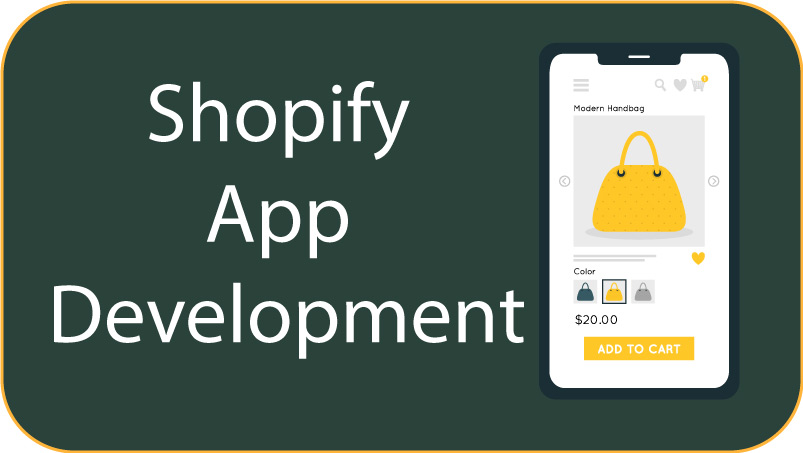Navigating the Future: Key Industry Trends Shaping Digital Marketing
In the fast-paced world of digital marketing, staying ahead of the curve is essential for businesses and marketer

In the world of e-commerce, Shopify App Development stands tall as a preferred part for businesses to set up and manipulate their online stores. The Shopify App Store, which features an extensive collection of applications, is at the foundation of Shopify’s success.

“Shopify meets the expectations of both store owners and development teams, optimising and enriching the possibilities of customising the appearance and functionality of the store, also opening up to headless and MACH solutions.” as quoted by Piotr Znamirowski, Head of Business Analysis | Brand Active.
These applications, designed to enhance the shopping level for traders and customers, result from a captivating technique referred to as Shopify App Development.
Shopify app improvement is the driving force behind the introduction of innovative and user-friendly solutions for agencies working on the Shopify platform. It encompasses designing, improving, and implementing packages that enlarge a Shopify store’s capability. The centre of app development in Shopify lies in its capability to empower traders to tailor their online stores, ensuring a fantastic purchasing experience for clients.
Developers engaged in Shopify app development address specific business needs, streamline processes, and boost overall efficiency. The features include personalised product recommendations, social media integration, inventory management, and order tracking. The essence of Shopify app development lies in crafting solutions that automate tasks, save time, and contribute to business growth.
Notably, app development in Shopify extends beyond merchant-focused applications and involves creating customer-facing apps. These apps enhance the shopping experience, from seamless checkout processes to loyalty program integrations and the development of mobile apps for easy access and engagement.
Shopify app development is vital to unlocking the total capacity of online stores. It opens doorways to countless opportunities for personalisation, innovation, and boom inside the ever-evolving e-trade landscape.
To fully comprehend app development in Shopify, one must delve into the intricacies of Shopify’s App industry. This ecosystem encompasses the vast network of apps available on the Shopify platform, allowing merchants to enhance the functionality and features of their online stores.
The Shopify App Ecosystem is a dynamic and diverse realm featuring thousands of apps developed by various entities, from independent developers to larger companies. It evolves continuously, with new apps joining the ranks regularly.
Central to this ecosystem is the Shopify App Store, which acts as a centralised marketplace where merchants discover and download apps for their stores. This store simplifies the system, supplying a one-prevent shop for locating and putting in apps to personalise and improve enterprise operations. User-friendly and handy, the Shopify App Ecosystem provides a platform for developers to exhibit their apps and reach a large target market of traders.
Additionally, it gives valuable assets together with documentation, boards, and developer groups, fostering surroundings of collaboration and knowledge sharing.
Understanding this ecosystem is paramount for developers and merchants, positioning them to navigate the platform efficiently and maximise the available resources.
Embarking on Shopify app development brings a multitude of benefits for both developers and merchants. The foremost advantage lies in the potential for monetisation. By creating and selling apps on the Shopify App Store, developers gain opportunities to generate revenue through app sales and recurring subscription fees, establishing a steady income stream.
Developing apps for Shopify opens doors to a vast user base, with over a million businesses utilising the platform. This extensive market allows developers to reach a large audience, potentially having their apps downloaded and used by thousands of merchants.
Collaboration and networking represent additional perks of app development in Shopify. The vibrant Shopify App Ecosystem serves as a network of builders, merchants, and experts captivated with e-trade. Joining this environment allows developers to connect with like-minded individuals, collaborate on projects, and share information.
Beyond financial gains, developing apps for Shopify allows creators to make a practical impact in the e-trade enterprise. Innovative and user-friendly apps can help merchants enhance online stores, streamline operations, and foster business growth. This aspect gratifies developers aiming to utilise their skills for meaningful contributions.
Shopify app development offers many benefits, from financial opportunities and a broad user base to collaboration prospects and the ability to contribute to the growth of the e-commerce industry.
Building successful Shopify apps involves mastering a combination of essential elements, forming the building blocks of app development. These include:
Shopify app development encompasses a range of languages and tools that empower developers to create powerful and feature-rich applications. Critical languages and tools include:
In essence, Shopify app development languages and tools provide developers with flexibility and power, allowing them to bring their app ideas to life through robust resources.
For those eager to embark on a journey into Shopify app development, numerous resources are available to facilitate learning. The Shopify Partner Program is a comprehensive learning path for aspiring app developers. Offering courses, documentation, and tutorials, the program covers everything from the basics of app development to advanced topics like app marketing and monetization.
Beyond the partner program, Shopify’s extensive documentation and developer resources provide API reference guides, code examples, and best practices. A hands-on approach method can be considered for the Shopify App CLI, permitting the scaffolding and building of a custom app without delay from the command line. Numerous online publications, tutorials, and communities committed to Shopify app improvement may be determined on systems like Udemy, Coursera, and YouTube.
These resources, taught by experienced instructors, guide learners through the app development process, ensuring a well-rounded understanding.
By leveraging these resources and continually honing skills through practice, individuals can become proficient Shopify app developers, unlocking the potential to create innovative solutions for businesses on the platform.
Far from a static endeavour, Shopify app development is dynamic, exciting, and, most importantly, a thriving field. As the e-commerce landscape expands, the demand for innovative and user-friendly Shopify apps rises. This surge in demand positions Shopify app development as an exciting avenue for developers to showcase their skills and create impactful solutions for businesses on the platform.
This dynamism is evident in the ever-expanding Shopify App Ecosystem, housing thousands of apps on the Shopify App Store. Developers have a vast marketplace to reach a broad audience of merchants, tapping into a growing user base and having their apps downloaded and utilised by numerous businesses.
The potential for monetisation in Shopify app development is substantial, with developers having the opportunity to generate a steady income stream through app sales and recurring subscription fees. This financial stability, coupled with the prospect of passive income, makes Shopify app development attractive for developers.
The sense of community and collaboration within the Shopify App Ecosystem further contributes to the thriving nature of Shopify app development. Developers, merchants, and experts passionate about e-commerce form a vibrant community. Within this community, developers can connect with like-minded individuals, collaborate on projects, and share knowledge and expertise, fostering a supportive environment.
Shopify app development is a thriving field offering endless opportunities for developers. The growing demand for innovative apps, coupled with the expansive Shopify App Ecosystem, provides a platform for developers to showcase their skills and reach a broad audience of merchants. With the potential for monetisation, a sense of community, and opportunities for collaboration, Shopify app development stands out as an exciting and thriving field to be part of.

Once an app has been successfully evolved and launched, scaling will become critical in expanding the Shopify app business. Scaling is vital to growing the commercial enterprise, increasing the consumer base, and generating more sales.
Several techniques can be hired to scale a Shopify app commercial enterprise successfully:
Scaling a Shopify app business requires dedication, strategic planning, and a commitment to continuous improvement. Implementing these strategies and remaining agile allows for successful growth and long-term success in the competitive e-commerce industry.
The Shopify App Store boasts numerous successful apps that have significantly impacted the e-commerce industry. These apps gained popularity for their innovative features, user-friendly interfaces, and ability to enhance the shopping experience. Let’s explore some examples of successful Shopify apps:
These examples showcase the potential for innovation and growth in Shopify app development. Developers can significantly impact the e-commerce industry by creating impactful and user-friendly apps.
As the e-trade industry keeps adapting, so does the landscape of Shopify app improvement. Anticipating future traits is crucial for builders to stay ahead of the curve and create solutions aligned with changing patron behaviours and technological advancements. Some future tendencies in Shopify app improvement consist of the following:
The future of Shopify app development holds exciting possibilities. Mobile commerce, AI integration, increased third-party platform integration, and a focus on sustainability are trends that developers can leverage to create innovative and impactful solutions. By staying informed and adapting strategies to those developments, builders can play a pivotal role in meeting the evolving wishes of traders and customers in the e-trade industry.
Shopify app development is an adventure to the e-trade innovation, allowing builders to form the destiny of online businesses. From the essence of creating user-friendly solutions to understanding the intricate Shopify App Ecosystem, the benefits of app development, and the building blocks that form the foundation, every aspect contributes to this field’s dynamic and thriving nature.
https://www.shopify.com/in/partners/blog/how-to-build-a-shopify-app
https://hevodata.com/learn/shopify-app-development/
https://www.orangemantra.com/blog/a-complete-guide-to-shopify-app-development/
https://brandactive.co/shopify-reviews-users-and-experts-opinions/
Our blog is a hub for valuable resources, informative guides, and insightful commentary on a
variety of industry topics, designed to help you stay up-to-date and informed.
In the fast-paced world of digital marketing, staying ahead of the curve is essential for businesses and marketer
In the fast-paced and ever-evolving world of digital marketing, staying informed and continuously learning is cru
In the ever-evolving world of digital marketing, staying ahead of the curve and building a strong online presence